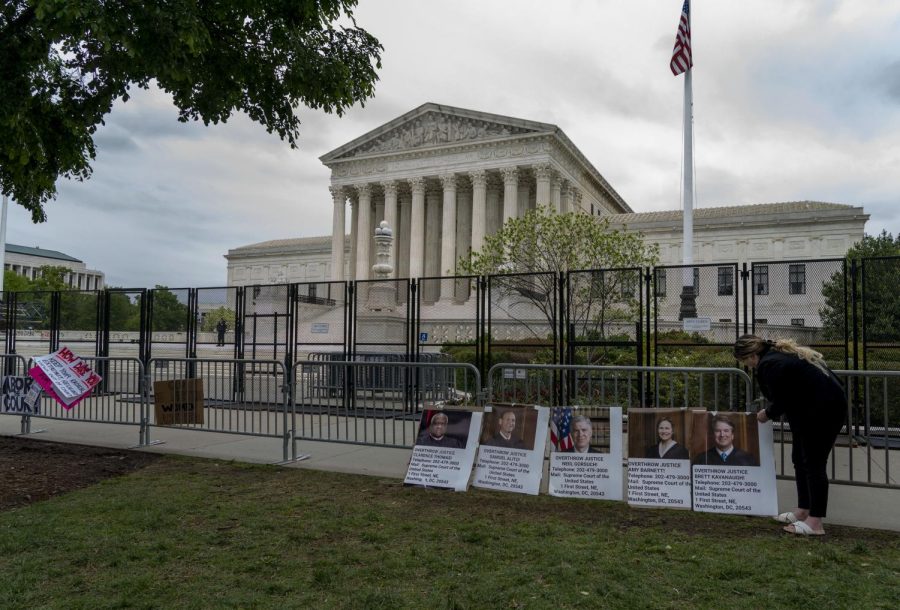Leaked Draft Confirms SCOTUS Decision to Overturn Roe v. Wade
AP Images/Gemunu Amarasinghe
A leaked document stating that the Supreme Court was going to overturn Roe v. Wade was confirmed to be authentic by Chief Justice John Roberts.
May 19, 2022
The landmark case Roe V. Wade has been struck down by the Supreme Court, according to a leaked initial draft written by Justice Samuel Alito. The draft was anonymously leaked to major news networks on May. 2.
The overturning of Roe v. Wade and other landmark abortion cases leaves abortions laws up to the states. Some state legislators have already come out in defense of abortions while other states are already drafting “trigger laws” to ban abortion. A trigger law is a law that would ban the procedure the moment Roe v. Wade is officially overturned. An NBC News analysis for reproductive rights found that 13 states gave trigger laws on the books.
Chief Justice John Roberts on Tuesday confirmed that the leaked draft was in-fact from the Supreme Court. Roberts was outraged, calling it an “egregious breach of trust.” An investigation has started to find who leaked the report.
The Court released its first public statement on May 3 confirming that the draft was authentic, but went on to say that “it does not represent a decision by the Court or the final position of any member on this case.” The statement leaves the door open to the court potentially backtracking its initial opinion, letting Roe V. Wade stand.
The statement released by the Court has not suppressed any fears however. Many activists were protesting on the steps of the Supreme Court shortly after the draft had been leaked. These activist hope that their protests will keep the Justices from tampering with the ruling on Roe V. Wade.
States have already prepared for the Supreme Courts decision with states such as Louisiana, Texas, Utah and more are preparing to ban abortions almost immediately. Michigan, Alabama, Wisconsin, West Virginia, and Arizona all have pre-Roe V. Wade abortion laws that could be reinstated.
States that protect abortion access include Alaska, California, Connecticut, Delaware, the D.C., Florida, Hawaii, Illinois, Iowa, Kansas, Maine, Maryland, Massachusetts, Minnesota, Montana, Nevada, New Jersey, New York, Oregon, Rhode Island, Vermont and Washington. Several of these states can still reduce the access to abortion, Florida being one.
Florida has a 15 week abortion ban which takes effect July 1. Other states with a 15 week abortion ban such as Mississippi has seen many legal battles from Women’s Rights Groups. Florida law does not include an exception for pregnancies that result from rape, incest or human trafficking but a women can get an abortion after 15 weeks if a doctor determines that a women’s life or health is at risk. A women can also get an abortion after 15 weeks if the baby will be born with a “fatal fetal abnormality.”
Abortion rights in America are destined to become a state-by-state issue if the Supreme Court Justices officially rule on overturning Roe V. Wade.





















